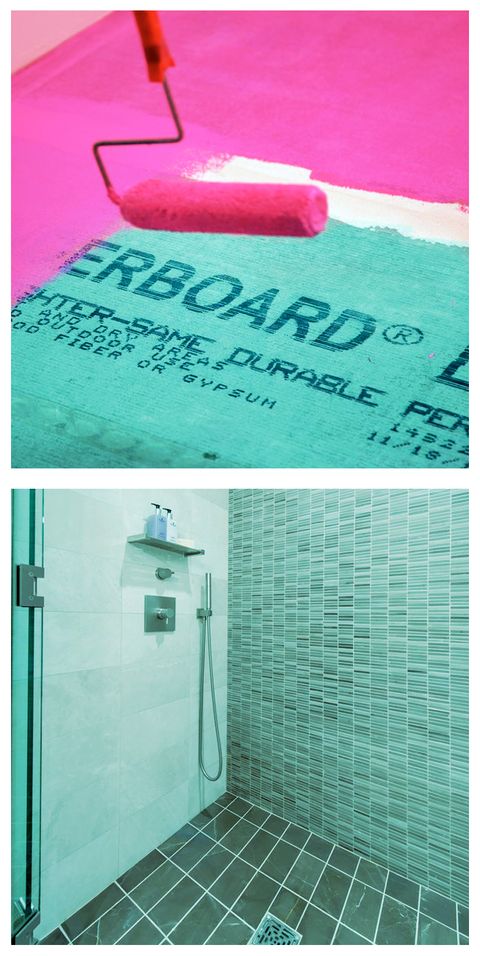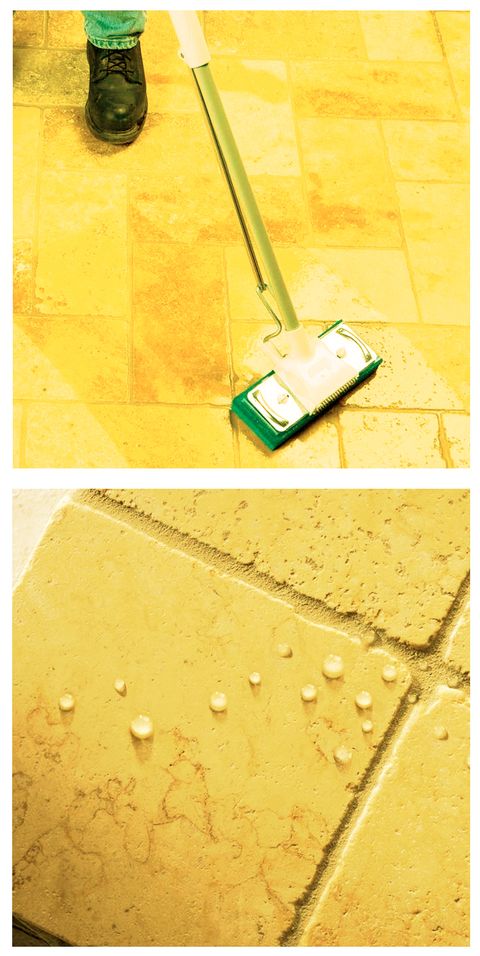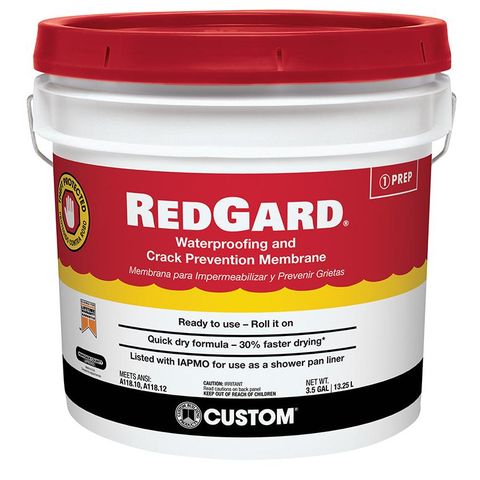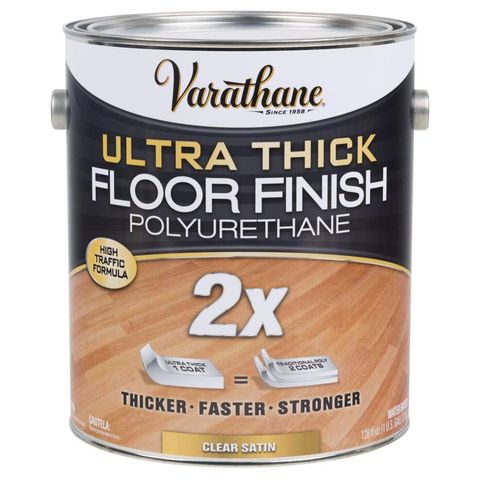Water finds its way onto floors throughout a home, whether via that post-shower tip-toe, a dripping colander, or rain-soaked galoshes.
Fortunately, there are plenty of ways to protect flooring against the wrath water can unleash (mold, mildew and decay, oh my!), no matter what kind of material is underfoot. Whether you are installing tile, laminate, vinyl or hardwood, here are methods and products — all of which you can find at The Home Depot — that can bring peace of mind when water is present.
Tile
Tile is often seen in bathrooms, entryways and mudrooms not just for its good looks and durability, but because it’s often fairly impenetrable to water, particularly if it’s porcelain tile (for more on it, visit the letter P). The grout that fills in between tiles, though, is porous and susceptible to water damage — it needs a little additional help in repelling moisture.
A waterproof membrane that’s added between the substrate and the tiles is key for providing the strongest line of defense against floor damage in a tiled room, followed closely by treating your grout with a specialized grout sealant, which works to create an impenetrable barrier against damage not only from water, but any type of sudsy shampoo (or other chemicals). Sealed grout should last between 5 to 10 years without needing another coat, so think of this as an afternoon’s worth of work that’ll last almost as long as a new roof.
Laminate and vinyl
Laminate flooring companies pride themselves on creating products that stand up against stains, scratches, spills and other flooring disasters. And, as many satisfied customers will tell you, they definitely live up to the hype. When it comes to water damage, though, most laminate flooring is “water-resistant” (not easily damaged by water), not totally waterproof.
This is a situation where product guarantees, manufacturer protocol and the warranty vary greatly from brand to brand, so it’s important to read the fine print. A large portion of “water resistant” laminate can hold its own against daily household spills if the liquid is cleaned up immediately. Some companies recommend using a sealant around vulnerable areas (like kitchen counters and dishwashers) to further prevent water damage. In large part, though, laminate will still buckle and warp when faced with any major flooding incident — a broken pipe, a leaking washing machine — and that covered by the warranty: something to keep in mind when choosing where laminate should go in your home.
And what about vinyl? Many engineered vinyl planks are already 100 percent waterproof, making them a strong choice for bathrooms and basements. And if you’re looking for an extra layer of security (or your subfloor requires it), consider installing a waterproof membrane or underlayment.
Hardwood
Hardwood is, without a doubt, the most finicky of all flooring when it comes to water, moisture or humidity. That’s why applying a finish on hardwood floors is critical for both their longevity and beauty as the years roll on.
A polyurethane finish (either oil or water-based) is a smart option for protecting hardwood floors because it stands up well against the puddles and splashes of life. Some engineered hardwood is treated with a water resistant sealant by the manufacturer, so double-check the warranty before purchasing so you know how to properly care for it.
And don’t forget to waterproof any outdoor wood floors! All decks, porches and sitting areas should be treated with an outdoor-specific wood sealant in order to guarantee you’ll be able to enjoy your backyard oasis for years to come.








